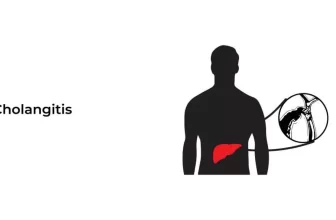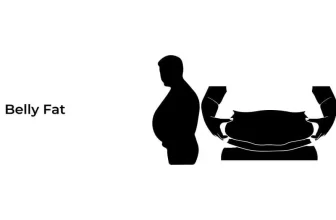Frequent urination and urinary frequency mean excessive urination (more than usual) during the day. This condition can disrupt a person’s regular routine and interrupts their sleep cycle, caused by certain medical issues such as pregnancy, diabetes, etc. Usually, people urinate 6 to 7 times a day, but if you exceed this range, you suffer from frequent urination or urinary frequency issues. Early diagnosis and treatment of this issue prevent a person from many serious complications.
Causes of Frequent Urination
Frequent urination is not itself termed a disease, but it can be a symptom of several diseases. Some of the common causes of frequent urination are given below:
Factors linked to frequent urination;
- An injury, any infection or disease in the urinary bladder
- Certain cancer treatments
- Environmental conditions
- Certain beverages or drug usage
- The urinary bladder infects specific changes in nerves, muscles, and other tissues.
Following disease and other medical conditions cause frequent urination;
- Anxiety disorders
- Bladder stones
- Diabetes insipidus
- Excessive consumption of caffeine or alcohol
- Infection in kidneys
- Bladder tumor
- Sexually transmitted infections (STIs)
- Neurological issues
- Pregnancy
- Treatments through radiation which affects the lower abdomen and pelvis
- Diabetes type 1 and 2
- Urinary incontinence
- Vaginitis
- Anterior prolapse
- Benign prostatic hyperplasia (BPH)
- Specific changes in the kidney functioning
- Diuretics
- Interstitial cystitis
- Overactive bladder
- Prostatitis
- Urethral stricture
- Urinary tract infection (UTI)
Symptoms of Frequent Urination
Excessive urination (more than usual) is one of the most common symptoms of frequent urination. This urine frequency adversely affects the patient’s lifestyle. Depending on the cause of urine frequency, people may also experience;
- Abdominal pain
- Nocturia and frequent urination at night
- Dribbling after urinating
- Pain during urination
- Difficulty in urination
- Unusual urine color
- Always a strong urge to urinate
- Urinary incontinence
- Loss of bladder control
When to visit a doctor:
Immediately contact your doctor if you are suffering from fever, nausea, vomiting, blood in urine, urinary incontinence, increased thirst, and other symptoms mentioned above, along with frequent urination. Proper treatment in the early stages will save a person from many health complications.
Diagnosis:
During diagnosis, the doctor may ask several questions about a person’s medical history, frequency of urination, and other symptoms. For this, your health care provider may ask the following questions about the;
- Current medication intake for other diseases
- Amount of caffeine and alcohol intake daily
- Quantity of fluid consumption daily
- Smell, color, and consistency of urine
- Pattern of frequent urination, how it starts, and its timing
Your doctor also performs a physical trial for a detailed diagnosis and to know the exact cause behind frequent urination. He may ask for the following tests;
- Ultrasound
- Urine analysis
- Neurological tests
- Blood tests
- CT or X-ray of the abdomen and pelvic area
- STI tests
A urodynamic test is used to diagnose your bladder, sphincter, and urethra. This test checks the functioning of the urethra, sphincter, and bladder. It primarily focuses on how your bladder holds and empties urine. The doctor observed the following things during testing;
- Noting the amount of urine produced by the patient
- Recording the time that a patient takes to produce urine
- Measuring a patient’s ability to stop urinating midstream
To get exact and accurate measurements, your doctor may use the following equipment;
- A monitor for the measurement of the pressure inside the bladder
- A sensor to record the nerve and muscle activity
- Imaging equipment to notice the bladder filling and emptying process.
Treatment of Frequent Urination
The treatment of frequent urination usually depends on the cause behind it. If diabetes mellitus is a cause behind frequent urination, the doctors will give medicines and therapy to manage the blood sugar level. On the other hand, if frequent urination is caused by an infection in the kidneys, the doctor will recommend pain killers and antibiotics. Additionally, if a person suffers from an overactive bladder issue, he will receive bladder control training, anticholinergic drugs, and other interventions. So the treatment of this issue varies from person to person and disease to disease. Following bladder training or exercises helps control frequent urination:
- Kegel exercises:
It’s a regular exercise that people usually perform during pregnancy to strengthen the pelvis and urethra muscles and supports the bladder. People will perform this exercise 3 times a day and at least 4 to 8 times weekly for excellent results.
- Bladder training:
Training helps hold urine in the bladder for a more extended period. This training is used to treat urinary incontinence and involuntary loss of urine.
- Monitoring fluid intake:
This method measures the patient fluid intake in a day. It helps reveal that excessive drinking at certain times causes frequent urination.
- Biofeedback therapy:
Biofeedback therapy is a non-drug treatment helpful for patients to control their involuntary bodily processes such as muscle tension, heart rate, and blood pressure. This treatment is combined with a Kegel exercise to improve the control of their pelvis muscles.
Preventions:
The following tips will help prevent frequent urination;
- Consume a balanced diet
- Maintain an active lifestyle
- Limit the alcohol and caffeine intake
- Avoid spicy food, chocolates, and artificial sweeteners
- Avoid drinking fluids before going to bed.
References:
- https://www.medicalnewstoday.com/articles/70782 retrieved on May 02, 2022.
- https://www.mayoclinic.org/symptoms/frequent-urination/basics/causes/sym-20050712 retrieved on May 02, 2022.
- https://www.webmd.com/urinary-incontinence-oab/frequent-urination-causes-and-treatments#:~:text=Frequent%20urination%20can%20be%20a,have%20a%20urinary%20tract%20infection retrieved on May 02, 2022.
- https://my.clevelandclinic.org/health/diseases/15533-urination–frequent-urination retrieved on May 02, 2022.
- https://www.healthline.com/health/overactive-bladder/frequent-urination-women retrieved on May 02, 2022.







